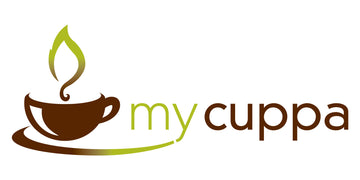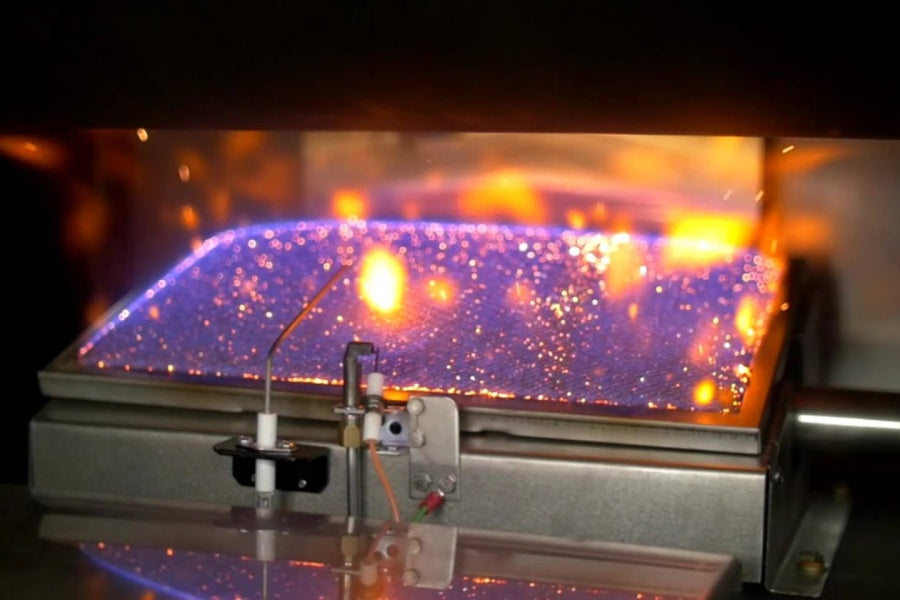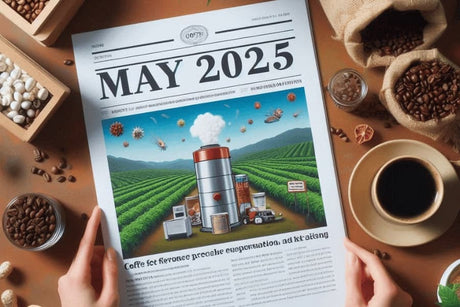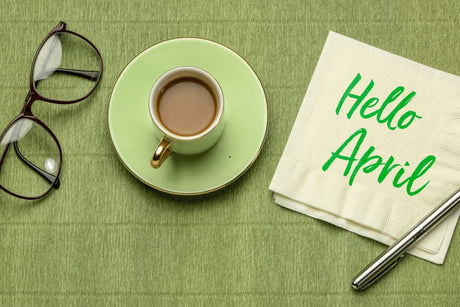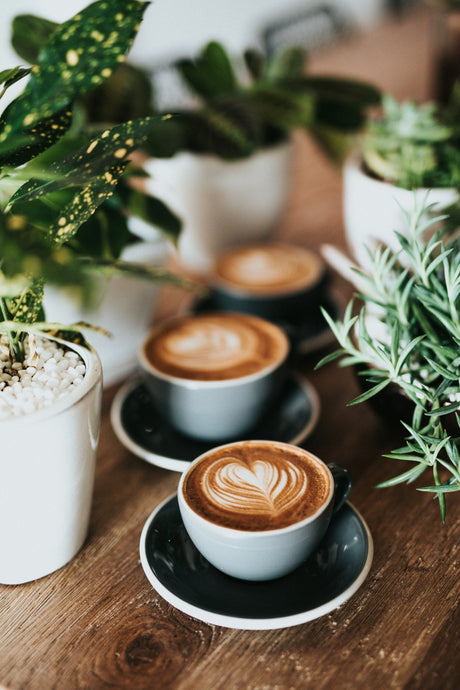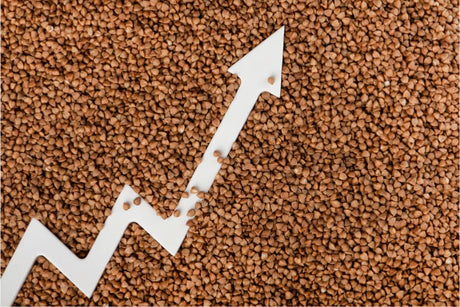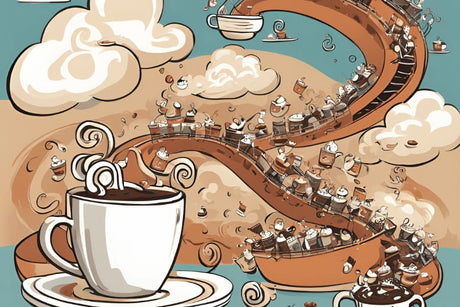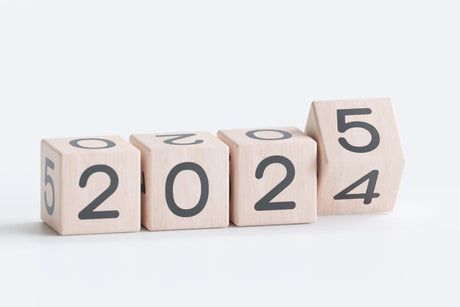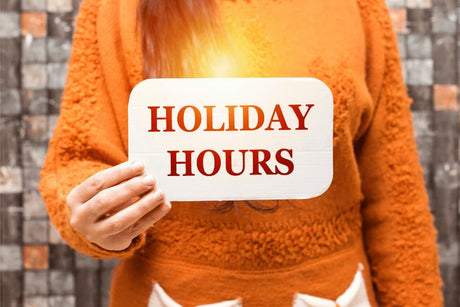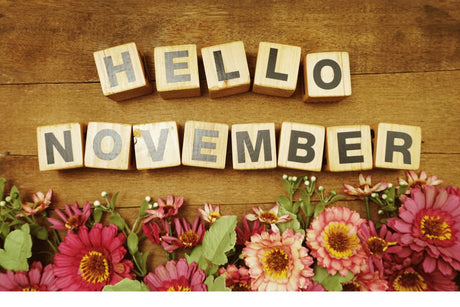“Just when the caterpillar thought the world was over, it became a butterfly.” — Zen proverb
mycuppa June 2020 Newsletter
This month's newsletter is late arriving in your inbox as coffees in our popular Secret Label program were held up in transit due to slower sea freight during the pandemic.
May continued the upward trend for consumers needing plenty of fresh roasted coffees to enjoy at home during restrictions.
The ongoing rise in order volumes has meant our ability to pick coffee for filling orders each day remains challenging, with some lines of fresh roasted coffee inventory running out before the end of the day.
Inevitably, we are roasting almost our entire portfolio every day, with larger quantities, and that's proved challenging and making this bloke chained to the roaster a little grumpy.
We increased the roasted coffee quantities to meet the higher demand, brewing five times a week instead of three.
We must constantly revise our roasting schedules to ensure we continue to achieve 100% of orders shipped on time every day. Speed is everything in the online space. Getting the parcel out the door fast is super-critical, mainly when freight transit times are unpredictable.
For a bit of fun and to reward our loyal subscribers, we ran a special 48-hour flash sale in May on a lovely Colombian, and the response was terrific, with so many jumping on the Narino train.
We ended up smashing records, so thank you for the support, and we hope you enjoyed that beautiful lot.
Parcel networks are still congested, particularly AusPost, as they process the most significant amount of parcels each day; hence, arrival times remain wildly inconsistent - some packages are arriving within a reasonable period, but others suffer the dreaded "delayed" status, which generally means the state parcel hub is overloaded and the Xray systems have backlogs, AusPost then sends freight into overflow warehouses to wait in a holding pattern until processing through a central hub.
Sendle is much faster in some segments, particularly in NSW, QLD and SA metro areas. Still, we caution that delicate and sensitive observation with a caveat that it all comes down to the local Sendle agent in your area - there are both good and bad operators in their network - it's got nothing to do with Sendle or us, but the local agent that handles the final leg.
If you experience issues with Sendle, please provide your feedback directly to Sendle so they can manage their network to weed out the poor-performing agents.
AusPost's Express service remains a concern as a shortage of flight slots hamstrings it, and we remind our customers again that Express is not a guaranteed delivery time frame service, but it's faster than standard.
In October 2019, we invested in a high-speed automatic packaging system from Italy for our 1kg bags, increasing our fleet of packing platforms to 3.
This system arrived in January 2020 before the restrictions closed many ports, but we have been too busy during the pandemic to ensure orders get out on time.
Sadly, this expensive new system intended to help us be more efficient and productive has been sitting on the floor idle with no opportunity to commission.
It's now in service and lifts our packaging capacity to around 530 kilos per hour, keeping our business agile and responsive to the rapid turnaround speeds required by the online marketplace.
Nobody does it faster - to roast, pack and ship in minutes, not hours or days!
This month's Secret Label is a shift into the joys of washed fruits with an African powerhouse.
Everyone is talking about blank canvases and doing things differently after COVID-19. We look at renowned chef Luke Mangan's changes to instil respect into an industry on its knees.
Roaster's Rant is back, and he's fired up from the disappointing tactics used by some advertisers to pull in new customers during the pandemic.

It seemed like June's Secret Label would never happen as we nervously waited for one of the lots to arrive after some delays at the origin and over the water.
Of course, that's life in coffee and regular when dealing with international cargo, especially from small countries.
We sighed in relief when it landed in our warehouse late last Friday afternoon, just before the long weekend.
For those avid enthusiasts of our Secret Label program, you may have noticed a recurring theme over the last five months - big, chewy chocolate textures.
The yummy stuff elicits a second cup, and it plays right into the core of what we believe the Australian coffee-drinking public craves. Everyone wins with big choc!
But Secret Label is not about playing it safe.
It's a chance to discover something new or exciting, and this month comes with a dollop of fruit-driven fun.
Instead of dipping a nervous toe into the fruity water, we have carefully waded in knee-deep.
It's not natural, so there won't be those searing wild fermented fruits that can throw people off. Still, I'll share some of the secrets that it's predominantly African, so be prepared for a degree of intensity and fruit from thoroughly washed coffees.
It's a blend, not a single origin, with a dominant theme departing from the last few months of heavy dark chocolates.
This month's Secret Label is a punchy, clean and high-flavoured lot with sugar cane sweetness, mixed berries, salted caramel, sparkling citric acidity and a long creamy finish.
African coffees command a decent price premium in the market.
At this price, it's a steal!
Buy as much as you want - we will roast it daily until the lot runs out.

Everyone is talking about blank canvases.
The COVID crisis has changed our lives.
No moment of our day seems to pass without thinking about how this virus affects our work and life.
Sometimes, it's the simple things like greeting a friend or family member, and you momentarily forget there are physical distancing protocols to adhere to - like a ubiquitous curse hanging over us that we crave would disappear forever.
A lot of businesses and work environments changed suddenly. Some adapted, and others couldn't.
The term "pivot" became a real survival war cry as businesses scrambled to cope with changing circumstances and restrictions.
We've seen some fantastic changes and incredibly creative ideas to keep trading, especially in hospitality, such as running deliveries of gourmet food and banquets to households in the evenings.
There has been a written about how recovery and collective rebuilding will restore our lives to a pre-COVID state. Just how long things will take to resume normal is anyone's guess and ranges from months to 2 years.
The most interesting discussions have been proposals for resetting or rebooting markets, industries or systems that were already dysfunctional before the coronavirus. The hiatus imposed by slowing activity presents a real opportunity for reform and fundamental change, whether it's the arts, sports, industrial relations, communications, media and education.
Without a doubt, there are renegades and activists everywhere plotting and planning changes to their direct environments, whether for the greater good or personal greed.
One such industry that has been crying out for reform is hospitality.
After a decade of rapidly declining profitability and major scandals, hospitality, having been dealt some of the most brutal blows from the pandemic, is shaping up as a likely candidate to emerge as a fitter and stronger contender once the shackles of restrictions lift.
Unfortunately, the full impact of the COVID shutdown is yet to be played out with hospitality as the incredibly generous government support packages have buffeted a portion of the direct pain.
People can only accurately model the consequences after removing financial support programs. We have already seen a significant shift from bricks and mortar to online across every industry, with some prematurely predicting the demise of physical stores in some retail segments and other large companies like Flight Centre, Wesfarmers, and David Jones, all taking the opportunity to jettison the unprofitable elements of their business.
Recently, I was keenly observing the interactions of Luke Mangan (renowned Sydney chef) and his displays of leadership in tackling some of the chronic issues faced by dining establishments and how it's attracted controversy.
The seemingly growing habit of diners making reservations and then not showing up is dealt with head-on by his intention to implement a system that requires restaurants to book on a set menu and then pre-pay in total, much like airline flights and many other services and products purchased.
Almost by chance, you could see a divided set of opinions, with about half of the people commenting negatively and attacking him for arrogance by how dare he ask for payment upfront.
Predictably, the other half was in full support of his reasons - of course, many of those in similar circumstances dealing with the issue of wearing huge costs for fickle customers who think nothing of not showing up for a booking or appointment.
The arguments in support of the change are fundamentally reasonable - restaurants don't make much margin, they have a lot of fixed costs and also need to organize extra resources in terms of people and ingredients well beforehand and when the time arrives to execute, their fresh and perishable provisions are not required because a group party cancelled at the last moment.
The cancelling party is not privy to the impact of costs and is unlikely to understand the mental and physical effects when a business suffers. Of course, there are legitimate reasons why some people cancel. Still, when cancellation risks are shared more equally under the pre-payment model, the booking party has an extra incentive to do their best to honour their side of the transaction.
It's amazing how the prospect of losing money motivates people to proceed in some circumstances.
It's not a revolutionary idea - heck, that's how it's been working in events and functions for a long time - pre-payment and partial refunds upon cancellation based upon upfront terms and conditions.
Yet the volatility in outrage is rather concerning or alarming - why? Some affronted souls think it's their sense of entitlement under threat, and maybe they are blind to the lack of similarities between a fine dining establishment and a Macca or Domino fast food business with remarkably different business processes and methods.
Good on Luke for making a difference and forcing us to think before we act. We are supporting and nurturing the talents and skills required of the staff to prepare fine foods.
When a restaurant offers a set menu, the food is prepared with great care, resulting in a more enjoyable dining experience and a higher likelihood that everyone will be satisfied.
For example, this is a generally accepted practice in France, yet there is outrage here in Australia.
When industries supply on onerous terms, there's no winner, just mediocrity and excuses. We often pay for fine dining but end up disappointed and resort to complaining. Applying pressure leads to misery for both sides.
How this relates to coffee is a stretch.
Still, it's a defining moment in an industry that's under extreme pressure and running for cover - how they turn the corner and decide to fight back in the face of increased competition from dark kitchens and the raft of newly curated home delivery gourmet banquets and regain relevance, and confidence makes for an interesting observation.

Roaster's Rant - selling snake oil
The last few months have been illuminating on many fronts - revealing some of the best (fantastic healthcare workers making huge sacrifices) and the worst in our society.
Embarrassingly, Australia was judged as the most selfish nation in the world as we collectively panic-bought toilet paper, sanitiser, face masks and staples to hoard and gloat over in excessively stocked pantries during anxious moments of fearing the worst.
The coffee industry also experienced a set of desperate moments; unfortunately, the trend continues.
Numerous social media ads claiming "support local, support small business, support Aussie companies, help us survive, save jobs" were designed to tug at our emotions.
We witnessed some disappointing and deceptive claims - companies misrepresenting facts like claiming Australian coffee when it wasn't grown in Australia.
Then we see suggestive ads claiming all supermarket coffee is made outside Australia by overseas global companies that can afford to weather the coronavirus storm.
Marketing is all about playing with your emotions to manipulate or influence purchasing decisions.
Australia's coffee industry comprises around 96% of small Australian businesses by brand and about 80-85% by volume (nobody knows the accurate figures, but it needs to be closer). Most of the brands are family-owned small coffee companies - just like us.
Except for big players that roast for commodities like McDonalds, Coles Urban Coffee culture, Aldi and Woolworths, those large companies are either majority or wholly owned by overseas entities. Still, you see some of the desperate social media advertisers (which were primarily small, niche, new or unknown brands) during the pandemic seemed intent on leveraging patriotic support promoting key messages that every other coffee brand is part of a large corporation and that you should buy from them to save local Aussie jobs.
We get it. The economy and businesses took a hit, and this is part of a fightback. But let's execute with honesty and integrity.
The days of imported roasted coffees (beans and ground) being a "force" in the domestic market ended more than a decade ago, except for Nespresso capsules and perhaps some instant coffees.
Roasted coffee is a fresh food, and Australian drinkers are no fools, with reportedly the world's highest and most demanding expectations for quality and freshness.
The coffee industry remains a labour-intensive business, and typically, the smaller the coffee business, the more manual and labour effort is required to run the company.
Of the almost 2000 brands in our Australian market, you can count on one hand the number of companies that have true end-to-end automation.
So, roasting coffee in Australia still requires much human effort across the entire supply chain and lifecycle, and even the tiny handful of overseas players need Australian employees to keep their operations running.
